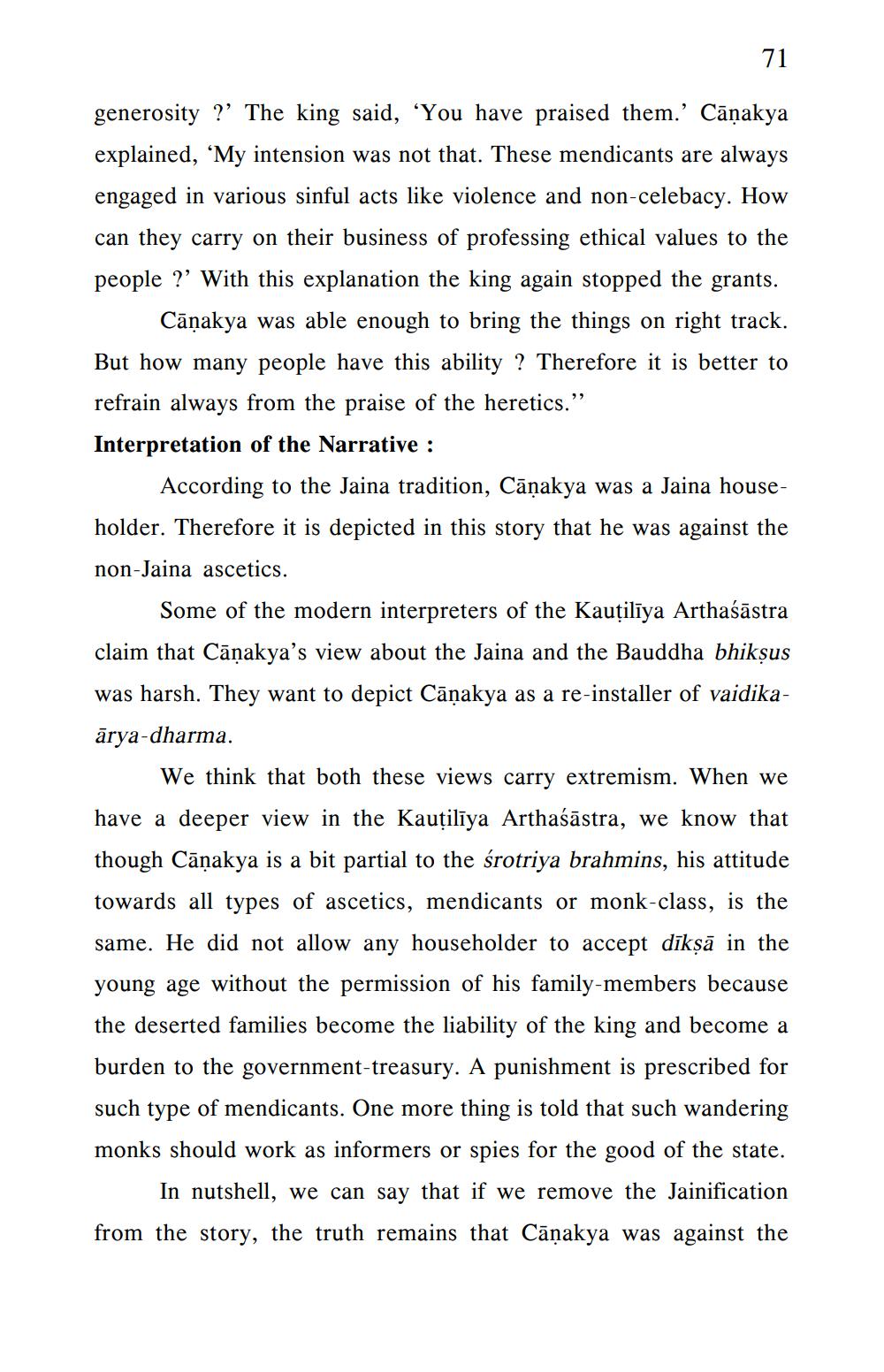________________
71
generosity ?' The king said, 'You have praised them.' Cāņakya explained, 'My intension was not that. These mendicants are always engaged in various sinful acts like violence and non-celebacy. How can they carry on their business of professing ethical values to the people ?' With this explanation the king again stopped the grants.
Cāņakya was able enough to bring the things on right track. But how many people have this ability ? Therefore it is better to refrain always from the praise of the heretics." Interpretation of the Narrative :
According to the Jaina tradition, Cāņakya was a Jaina householder. Therefore it is depicted in this story that he was against the non-Jaina ascetics.
Some of the modern interpreters of the Kauțilīya Arthaśāstra claim that Cāņakya's view about the Jaina and the Bauddha bhikṣus was harsh. They want to depict Cāņakya as a re-installer of vaidikaārya-dharma.
We think that both these views carry extremism. When we have a deeper view in the Kauțilīya Arthaśāstra, we know that though Cāņakya is a bit partial to the śrotriya brahmins, his attitude towards all types of ascetics, mendicants or monk-class, is the same. He did not allow any householder to accept dīkņā in the young age without the permission of his family-members because the deserted families become the liability of the king and become a burden to the government-treasury. A punishment is prescribed for such type of mendicants. One more thing is told that such wandering monks should work as informers or spies for the good of the state.
In nutshell, we can say that if we remove the Jainification from the story, the truth remains that Cāņakya was against the




